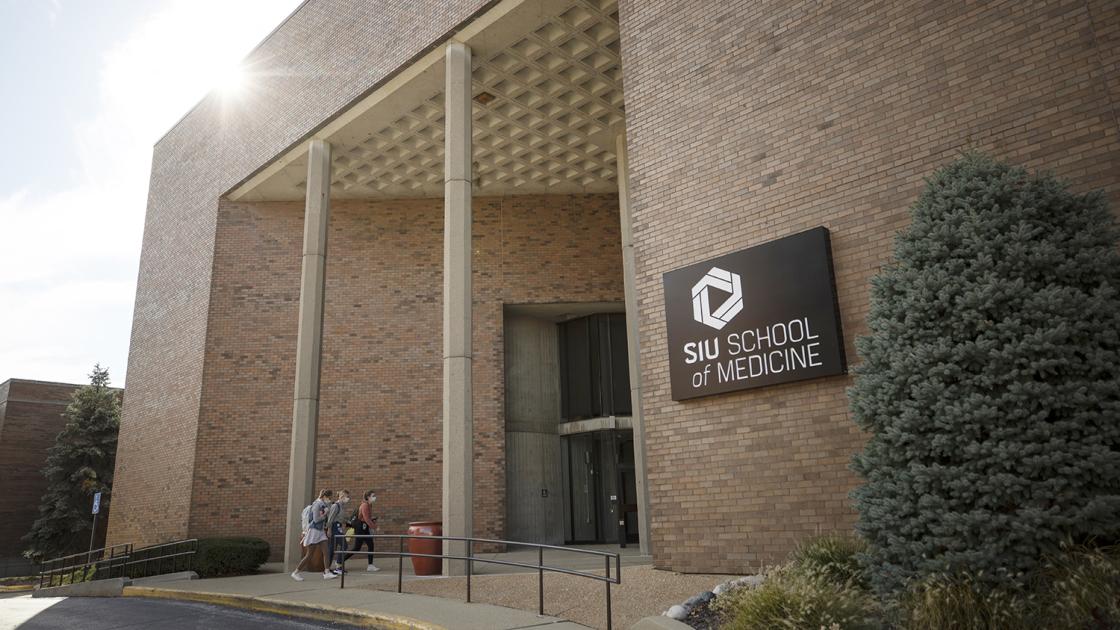
Study suggests colder environments do not improve cognition in Alzheimer’s
Environmental effects vary by gender as well
SPRINGFIELD, Ill. – As people age, the body’s ability to generate heat and maintain a steady internal body temperature worsens. New findings out of the Hascup research groups suggest that decline, combined with a chronic colder environment, may increase Alzheimer’s disease progression — particularly in women.
Published in The Journals of Gerontology, the study from Drs. Kevin Hascup and Erin Hascup research groups at the Smith Alzheimer’s Center at SIU Medicine focuses on exposure to colder environments and the effect on cognitive performance.
As we age, the body loses muscle mass, digestion slows, and the risk for diabetes, or insulin resistance, increases. Scientists have also determined this metabolic dysfunction increases the risk for developing Alzheimer’s disease. But research has also shown that a cooler environment improves metabolism, with long-term exposure reducing the risk for diabetes and insulin resistance.
“Our previous research has shown that metabolic dysfunction is a contributing factor to Alzheimer’s disease progression,” Kevin Hascup, PhD, said. “Our lab is interested in examining drug-free interventional strategies to improve metabolic function and help delay or lessen cognitive decline.”
Colder environments can increase metabolism as the body burns calories to generate heat. Metabolic dysfunction increases as we age, and the body is unable to regulate all systems as effectively. Those lapses can also contribute to Alzheimer’s disease development.
Studies show chronic exposure to a colder environment improves metabolism and positively affects insulin sensitivity, which in turn offers greater protection from diseases such as diabetes. However, in comparing differences between an environmental temperature of 16° C (60.8° F) to 23° C (73.4° F), that same exposure degraded cognitive performance in spatial learning and memory recall.
In fact, the colder environment exhibited different response between male and female models, suggesting faster Alzheimer’s disease progression in females.
“We were surprised to observe several biological factors were worse in females after cold exposure, which may account for their faster cognitive decline,” Kevin Hascup said.
Female models had increased blood cytokine markers, suggesting increased systemic inflammation. Glucagon and adiponectin, two hormones that regulate blood sugar levels, were altered in a way that promotes metabolic dysfunction. Amyloid plaques, one of the pathological hallmarks associated with Alzheimer’s disease, were also increased in the brain of the female models. These factors suggest that disease progression occurs faster in females. Therapies administered to both sexes at the same age may show beneficial effects in males but not females, simply because the female is at a more advanced stage of the disease.
Women account for more than 60 percent of Alzheimer’s patients over 65, according to recent studies, although the exact reason for a higher incidence of Alzheimer’s in women is still unknown. This study suggests that the varied response to an environmental change may indicate differences in therapeutic outcomes from interventions for women and men of the same age.
Research lab coordinator Samuel McFadden was lead author of the publication. The National Institutes of Health, Dale and Deborah Smith Center for Alzheimer’s Research and Treatment, Kenneth Stark Endowment, Illinois Department of Public Health, Illinois Health Improvement Association, and NIA R21-AG062985 all supported the study.
The Smith Alzheimer’s Center at SIU Medicine is one of three state-designated Alzheimer’s Disease Assistance Centers in Illinois. Its mission is to integrate patient care, education, and research to better understand the biological aspects of aging, cognition, and neurodegenerative disorders to design innovative personalized care.



